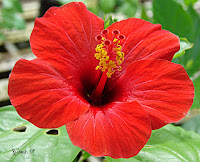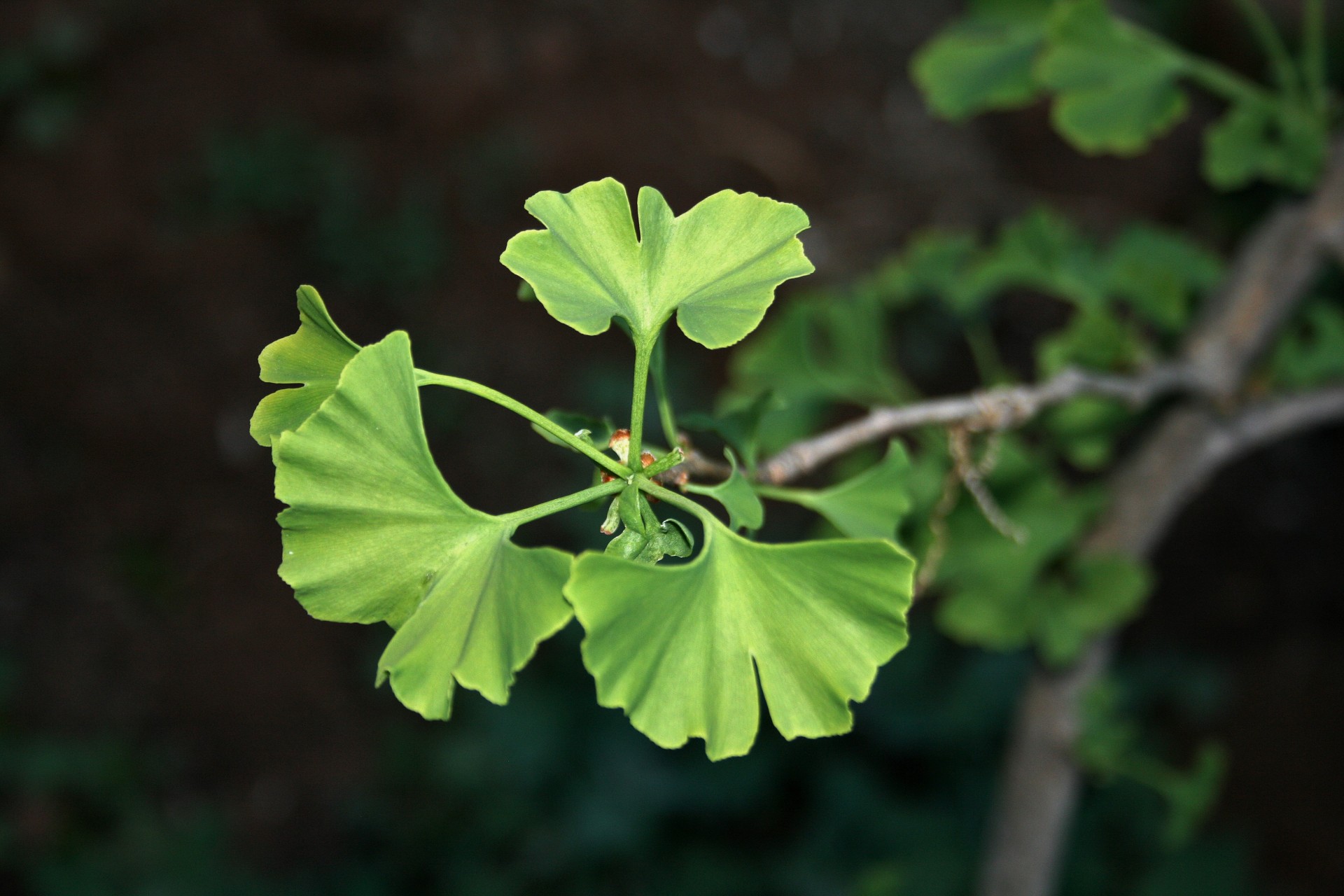Heart Healthy Herbs
by Sage Contributor: Elizabeth Traison
As we age, one topic that becomes increasingly more important is heart health. According to the CDC (Center for Disease Control), cardiovascular disease is one of the top health concerns in the US with nearly 1 in 4 people experiencing a cardiovascular condition like hypertension, elevated cholesterol, heart attacks, ischemia and more. There are a few wonderful plants that can support heart health that everyone should know about.
Hawthorne is one of the most well-known herbs when it comes to heart health. Almost every part of the plant, from leaves, to stems, to flowers and berries can be helpful to the heart. This wonderful herb is used to help keep blood pressure in a normal range. Hawthorne can also be used to help promote good cholesterol balance in the body, which helps keep the heart beating strong. Steep Hawthorne berries and/or leaves and stems in a water for a heart-warming and healing tea.
Hibiscus is another herb that can help with heart health. Well known for it’s beautiful brightly colored flowers, and it’s slightly sour tea, hibiscus has many healing properties as well. Like hawthorne, it helps to keep blood pressure and cholesterol in balance. It can also be used in combination with others herbs, like lemon balm, to aid with falling asleep. Steep dried hibiscus petals in water for a magnificently colored, nourishing tea.
Despite its reputation of causing “garlic breath”, garlic is one of the most potent (and most delicious!) herbs to support heart health. It has long been used in traditional medicine, with records dating back as far as Hippocrates. Garlic is known both as an antioxidant, and also used to lower cholesterol and triglyceride levels. In addition to using garlic in recipes, garlic can be added to teas. For a really delicious creation, place peeled garlic cloves in raw honey and allow to sit for some time. Add the syrup to teas and salad dressings to help with overall health.
Motherwort is used to support both the physical and the emotional heart. Most often, motherwort is used to calm heart palpitations or fluttering, conditions that are sometimes associated with emotions like nervousness and anxiety. Like other the aforementioned herbs, motherwort can also be used to aid in hypertension. The flower of the plant can be made in tincture or teas.
Most of us are already familiar with the benefits of olive oil, but fewer know about the power of the olive leaf. Oleuropein is one of the main compounds found in olive leaf, and it is associated with lowering blood pressure and preventing cardiovascular disease by lowering elevated LDL levels. Try olive leaves steeped as a tea, or look for it in a supplemental powdered form.
Gingko is often known for its ability to help with memory and cognition, but Gingko can also help with heart health! By improving blood flow, strengthening capillaries, and reducing clotting this herb helps to ensure that the heart is getting enough blood and circulation is strong throughout the body. Gingko can be found consumed as a tea or as a supplement.
Reishi is a potent mushroom that has been used in Chinese medicine for centuries. As an adaptogen, which helps with the negative effects of stress, Reishi mushrooms assist in maintaining balance in the body. Additionally, Reishi mushrooms have been shown to reduce blood pressure and improve circulation. These fungi also have an effect on preventing high LDL cholesterol and lowering inflammation. Reishi mushroom tops can be used as a tea, as a tincture, and also found in powdered supplemental form which can be sprinkled into food.
There are also delicious spices that can be used to help with heart health in addition to these herbs. The main compound in turmeric is curcumin, a powerful antioxidant. Turmeric is well known for it's anti-inflammatory powers, and it is also shown to help lower LDL-cholesterol and raise HDL-cholesterol. The main component of ginger is gingerol which is thought to help relax blood vessels, stimulating blood flow. Like turmeric, ginger is also anti-inflammatory. Black pepper can be used to lower LDL-cholesterol, especially for people consuming high fat diets. It has also been shown to help with the recovery of people who suffer from heart attacks. Cinnamon has also been linked with a lowered risk of heart disease by reducing LDL-cholesterol and keeping HDL levels stable. Some studies suggest that cinnamon may lower blood pressure too.
For a tasty way to try all of these heart healthy spices together, try Golden Milk. Combine one or two teaspoons of turmeric and ground or fresh ginger with a quarter teaspoon of cinnamon and a healthy pinch of black pepper. Whisk into almond or another nut milk over a low heat, adding honey to your liking. It's a tasty, heart healthy, anti-inflammatory treat!
In addition to adding herbs and spices into the diet, there are other important self-care practices that promote optimum heart function, which contributes to better overall health. The heart works hard all day, making sure to get enough rest ensures the heart can continue to function at its best. Choosing foods such as colorful fruits and vegetables and whole grains supply vital nutrients to the heart. Be sure to choose healthy mono- or polyunsaturated fats instead of saturated or trans fats which keep the heart beating and the blood flowing.
This information is meant to be educational, not prescriptive. Always check with your doctor and/or clinical herbalist before taking herbal medications.
Learn More:
https://alternativemedicine.com/heart-healthy-herbs/
http://www.gaiaherbs.com/articles/detail/42/The-Surprising-Health-Benefits-of-Hibiscus
https://www.drsinatra.com/dr-sinatras-top-healing-herbs-and-spices
https://www.ncbi.nlm.nih.gov/pmc/articles/PMC3083808/
As we age, one topic that becomes increasingly more important is heart health. According to the CDC (Center for Disease Control), cardiovascular disease is one of the top health concerns in the US with nearly 1 in 4 people experiencing a cardiovascular condition like hypertension, elevated cholesterol, heart attacks, ischemia and more. There are a few wonderful plants that can support heart health that everyone should know about.
 |
| Hibiscus Flower |
Hawthorne is one of the most well-known herbs when it comes to heart health. Almost every part of the plant, from leaves, to stems, to flowers and berries can be helpful to the heart. This wonderful herb is used to help keep blood pressure in a normal range. Hawthorne can also be used to help promote good cholesterol balance in the body, which helps keep the heart beating strong. Steep Hawthorne berries and/or leaves and stems in a water for a heart-warming and healing tea.
Hibiscus is another herb that can help with heart health. Well known for it’s beautiful brightly colored flowers, and it’s slightly sour tea, hibiscus has many healing properties as well. Like hawthorne, it helps to keep blood pressure and cholesterol in balance. It can also be used in combination with others herbs, like lemon balm, to aid with falling asleep. Steep dried hibiscus petals in water for a magnificently colored, nourishing tea.
Despite its reputation of causing “garlic breath”, garlic is one of the most potent (and most delicious!) herbs to support heart health. It has long been used in traditional medicine, with records dating back as far as Hippocrates. Garlic is known both as an antioxidant, and also used to lower cholesterol and triglyceride levels. In addition to using garlic in recipes, garlic can be added to teas. For a really delicious creation, place peeled garlic cloves in raw honey and allow to sit for some time. Add the syrup to teas and salad dressings to help with overall health.
Motherwort is used to support both the physical and the emotional heart. Most often, motherwort is used to calm heart palpitations or fluttering, conditions that are sometimes associated with emotions like nervousness and anxiety. Like other the aforementioned herbs, motherwort can also be used to aid in hypertension. The flower of the plant can be made in tincture or teas.
Most of us are already familiar with the benefits of olive oil, but fewer know about the power of the olive leaf. Oleuropein is one of the main compounds found in olive leaf, and it is associated with lowering blood pressure and preventing cardiovascular disease by lowering elevated LDL levels. Try olive leaves steeped as a tea, or look for it in a supplemental powdered form.
 |
| Gingko Bilboa |
Reishi is a potent mushroom that has been used in Chinese medicine for centuries. As an adaptogen, which helps with the negative effects of stress, Reishi mushrooms assist in maintaining balance in the body. Additionally, Reishi mushrooms have been shown to reduce blood pressure and improve circulation. These fungi also have an effect on preventing high LDL cholesterol and lowering inflammation. Reishi mushroom tops can be used as a tea, as a tincture, and also found in powdered supplemental form which can be sprinkled into food.
There are also delicious spices that can be used to help with heart health in addition to these herbs. The main compound in turmeric is curcumin, a powerful antioxidant. Turmeric is well known for it's anti-inflammatory powers, and it is also shown to help lower LDL-cholesterol and raise HDL-cholesterol. The main component of ginger is gingerol which is thought to help relax blood vessels, stimulating blood flow. Like turmeric, ginger is also anti-inflammatory. Black pepper can be used to lower LDL-cholesterol, especially for people consuming high fat diets. It has also been shown to help with the recovery of people who suffer from heart attacks. Cinnamon has also been linked with a lowered risk of heart disease by reducing LDL-cholesterol and keeping HDL levels stable. Some studies suggest that cinnamon may lower blood pressure too.
For a tasty way to try all of these heart healthy spices together, try Golden Milk. Combine one or two teaspoons of turmeric and ground or fresh ginger with a quarter teaspoon of cinnamon and a healthy pinch of black pepper. Whisk into almond or another nut milk over a low heat, adding honey to your liking. It's a tasty, heart healthy, anti-inflammatory treat!
In addition to adding herbs and spices into the diet, there are other important self-care practices that promote optimum heart function, which contributes to better overall health. The heart works hard all day, making sure to get enough rest ensures the heart can continue to function at its best. Choosing foods such as colorful fruits and vegetables and whole grains supply vital nutrients to the heart. Be sure to choose healthy mono- or polyunsaturated fats instead of saturated or trans fats which keep the heart beating and the blood flowing.
This information is meant to be educational, not prescriptive. Always check with your doctor and/or clinical herbalist before taking herbal medications.
Learn More:
https://alternativemedicine.com/heart-healthy-herbs/
http://www.gaiaherbs.com/articles/detail/42/The-Surprising-Health-Benefits-of-Hibiscus
https://www.drsinatra.com/dr-sinatras-top-healing-herbs-and-spices
https://www.ncbi.nlm.nih.gov/pmc/articles/PMC3083808/


Comments
Post a Comment